Grand Opening of the Digestive Diseases Diagnosis and Treatment Center
Grand Opening of the Digestive Diseases Diagnosis and Treatment Center
Recently, the Digestive Center at the main campus of Gansu Wuwei Tumor Hospital has been officially inaugurated. As a provincial-level key discipline and a national-level discipline under development for the hospital's Digestive Medicine Department, this opening not only represents a concentrated showcase of its accumulated expertise in digestive diagnosis and treatment technologies but also marks a significant event symbolizing the leap from "technological breakthrough" to "system leadership" in the prevention and treatment of digestive tract diseases in Western China. Centered on the "single-disease diagnosis and treatment" model, the center is fully capable of diagnosing and treating various hepatobiliary, gastric, and intestinal diseases, indicating that the new paradigm for digestive diagnosis and treatment in the west, core to the "Wuwei Model," has entered a new phase of practice.
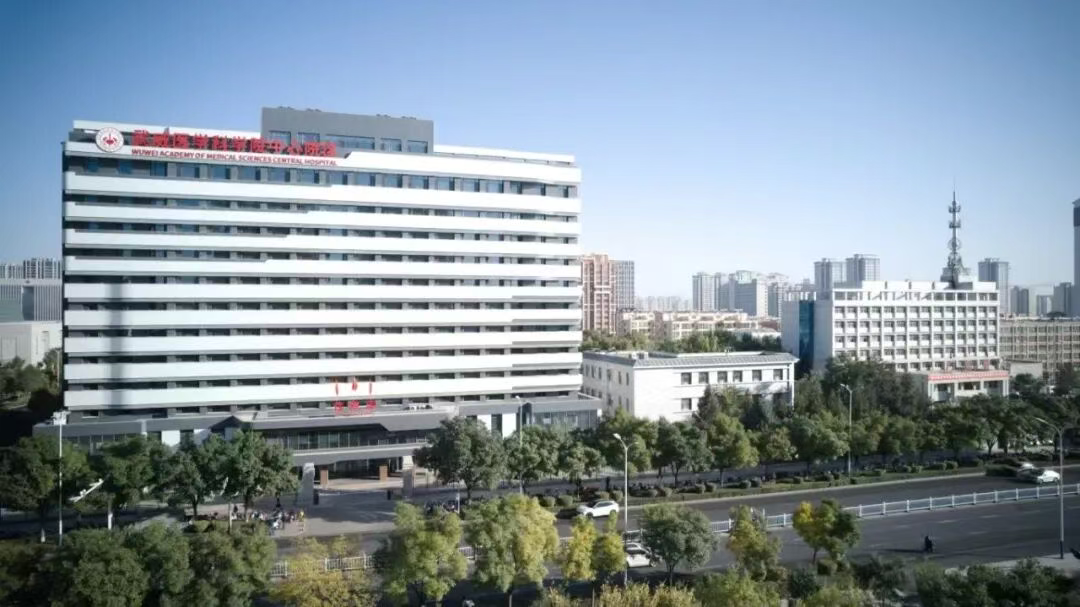
Technology Breakthrough: Building a Peak in Western Diagnosis and Treatment Technology with "Gansu's Firsts"
Technological innovation is the core engine of disciplinary development. Leveraging decades of technological accumulation in digestive medicine, the center has taken "minimally invasive diagnosis and treatment" as a breakthrough point, continuously refreshing medical technology records in Gansu and establishing a leading core competitiveness in western China: in 2023, it successfully performed an endoscopic transcecal appendectomy, pioneering a new minimally invasive approach for appendiceal treatment in the province; in 2024, it completed Gansu's first robot-assisted endoscopic transanal abdominal wall scarless appendectomy, deeply integrating minimally invasive technology with intelligent surgery; in 2025, it reached new heights by mastering techniques such as the combined gastroscope and laparoscope radical gastrectomy for gastric cancer and Gansu's first endoscopic ultrasound-guided biliary drainage (EUS-BD), forming a full-chain minimally invasive diagnosis and treatment system covering early gastrointestinal cancers and complex disorders.
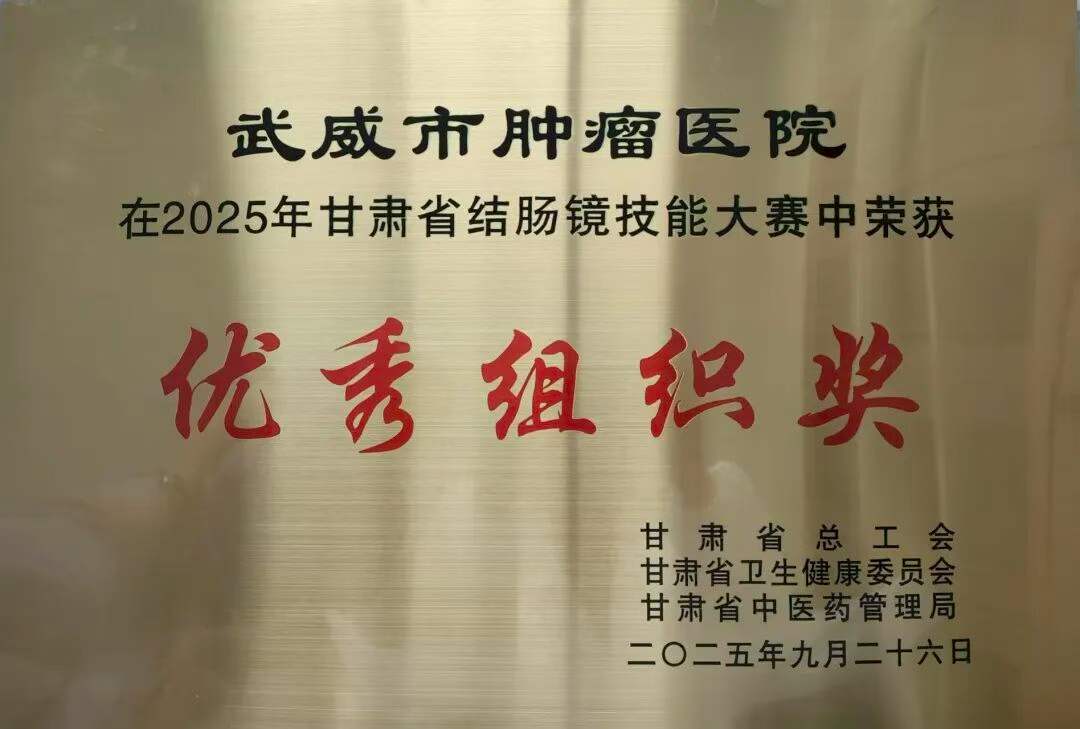
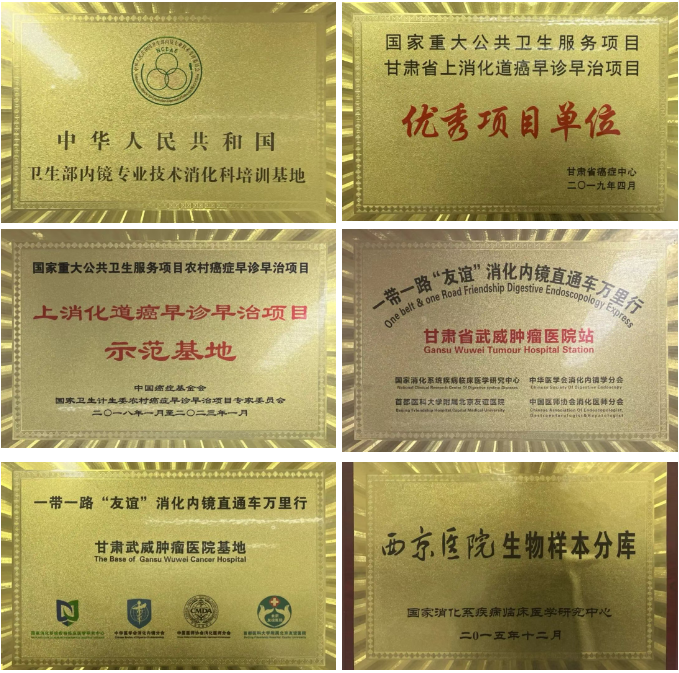
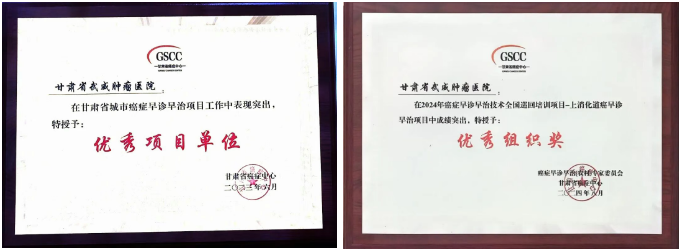
Solid data attest to its technical strength: it has ranked first in both the volume and rate of painless endoscopies in the province for eight consecutive years, with the detection rate of upper gastrointestinal cancers and the volume of endoscopic submucosal dissection (ESD) treatments consistently leading the province. Furthermore, it won the championship in the "National Endoscopy-Pathology Joint Diagnosis and Treatment Technology Competition," establishing a technological benchmark certified by industry authority.
Top-tier hardware ensures precise diagnosis and treatment. The center is equipped with 2 endoscopy centers and 15 standardized procedure rooms, with nearly 20 suspended Olympus endoscopy systems and over 50 high-end endoscopes forming a comprehensive endoscopy diagnosis and treatment matrix. The first domestically produced Toumai four-arm surgical robot, Gansu's first super-iterative PET-CT, and more than 300 other advanced pieces of equipment are simultaneously operational, forming a first-class western cluster of "intelligent equipment + precision technology" for diagnosis and treatment, providing solid support for managing complex diseases
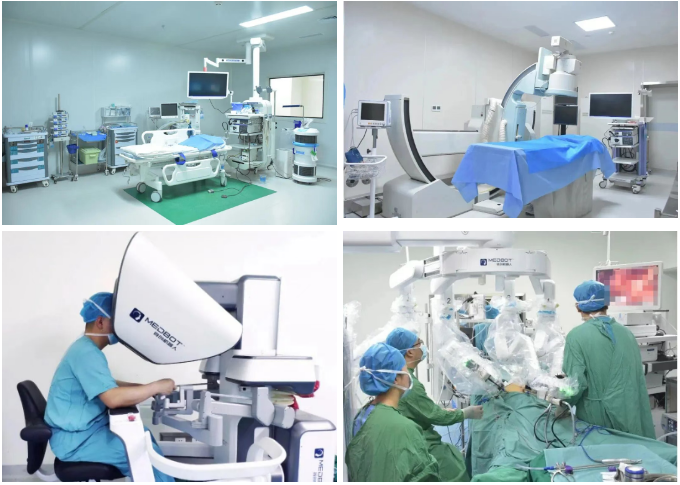
Talent Foundation: Building a National-Level Professional Team through "Sino-Foreign Collaboration"
High-level talents are the fundamental guarantee of diagnostic and therapeutic quality. Addressing the strategic needs for prevention and treatment in Wuwei’s gastric cancer high-risk area, the hospital has established a talent cultivation system characterized by "top experts leading, multi-disciplinary collaboration, and international resource empowerment":
A core team led by senior experts including Chief Physician Zhang Zhiyi (Leading Talent of Gansu Provincial Health System), Chief Physician Wu Zhengqi (Gansu Provincial Leading Talent), and Chief Physician Lu Linzhi ("Most Beautiful Scientific Worker") spearheads disciplinary development.
Renowned Japanese gastroenterologist Professor Kohei Takizawa was invited as a special appointed professor for regular residency training, introducing advanced international diagnostic concepts and technical standards to support the push for a national-level key specialty.
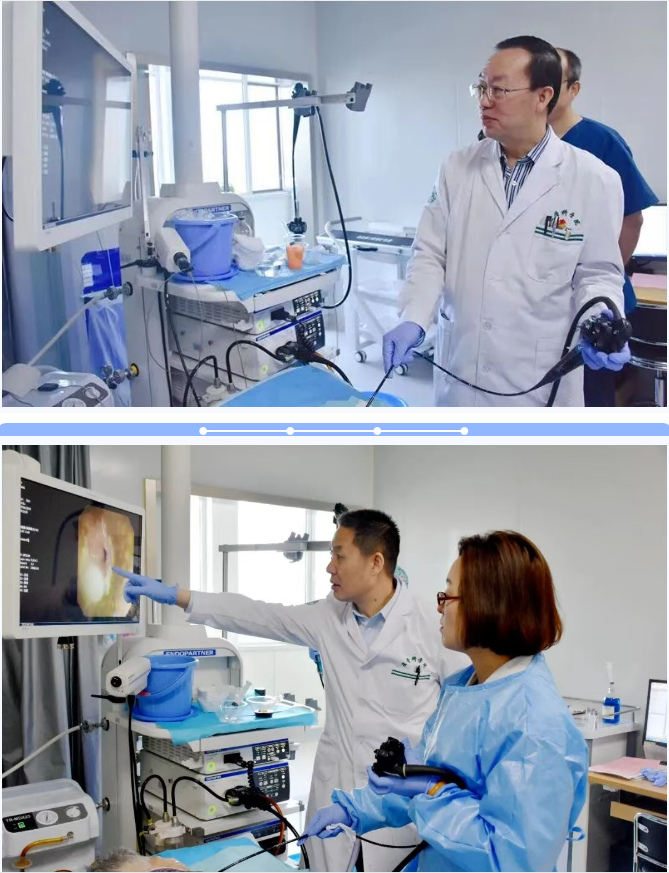
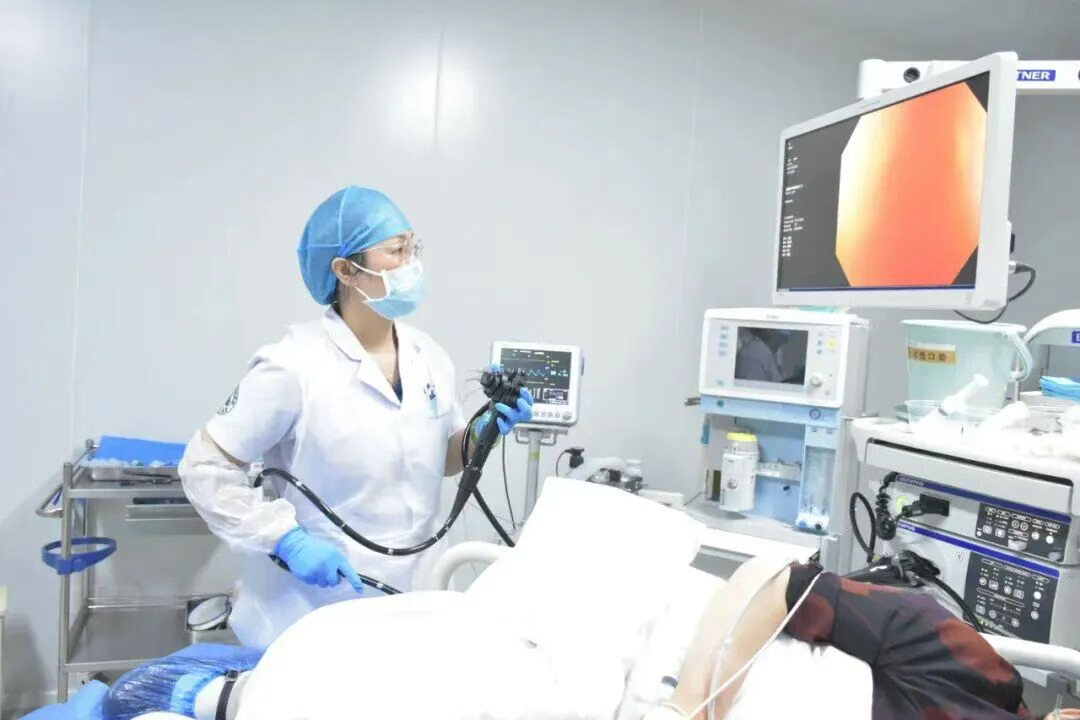
The "Mentorship Mechanism" fuels the talent pipeline. Examples include Bian Yulong (first prize in provincial colonoscopy skills competition) and Xin Liang (second prize), alongside Deputy Chief Physician Xie Chunfang (outstanding instructor), reflecting the team’s training outcomes. The hospital integrates senior digestive surgery experts to build a Multi-Disciplinary Team (MDT) platform (gastroenterology, surgery, pathology, imaging), enabling "one-stop" management of complex diseases and sustaining disciplinary growth.
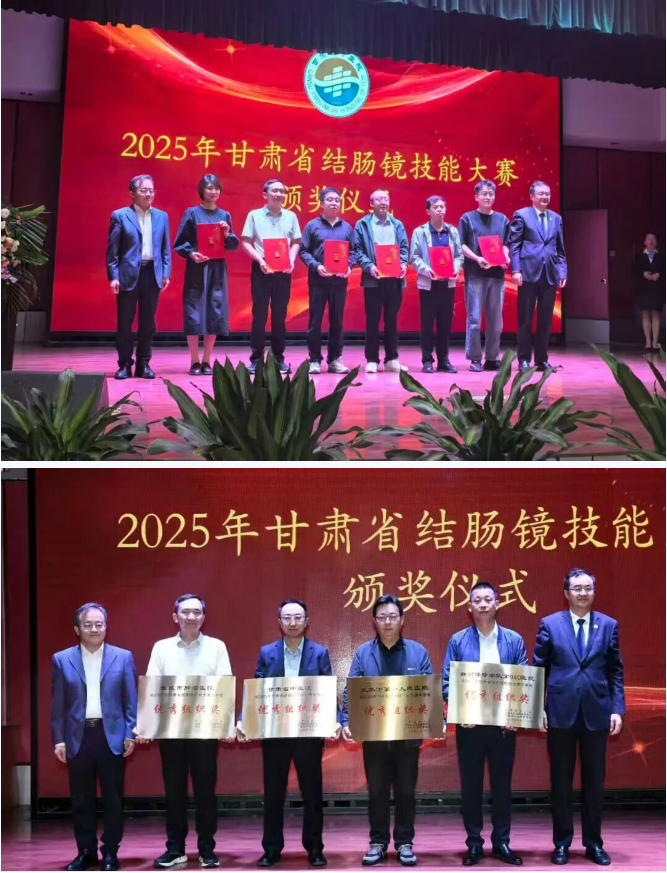
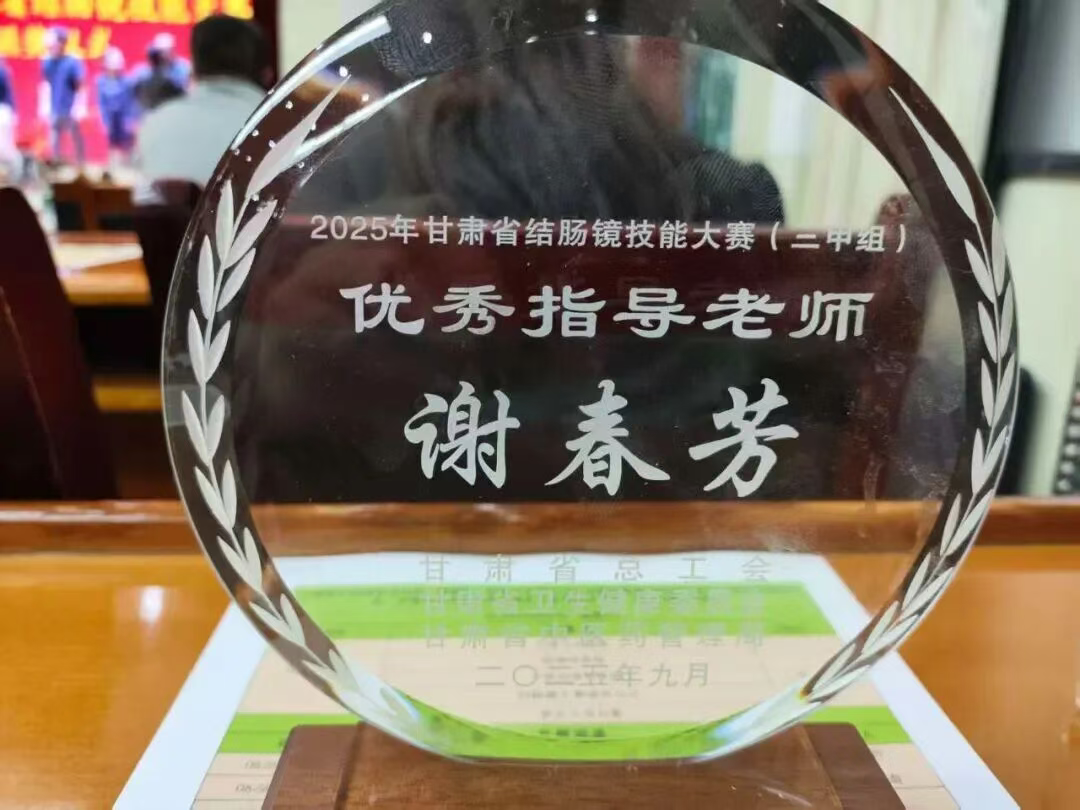
Benefiting the People: Implementing the "Healthy China" Western Mission via "Prevention-Screening-Diagnosis-Treatment"
As a pioneer in gastric cancer prevention in high-risk areas, the center’s 20-year refinement of the "Wuwei Model" has become a benchmark for western China under the "Healthy China" strategy. Since initiating early gastric cancer diagnosis and treatment projects in 2006 with support from Beijing Friendship Hospital, the center leveraged national healthcare reforms to scale screening from "pilot points" to "population coverage." This effort halved Wuwei’s gastric cancer incidence and significantly reduced mortality compared to 2006, saving tens of thousands through early detection.
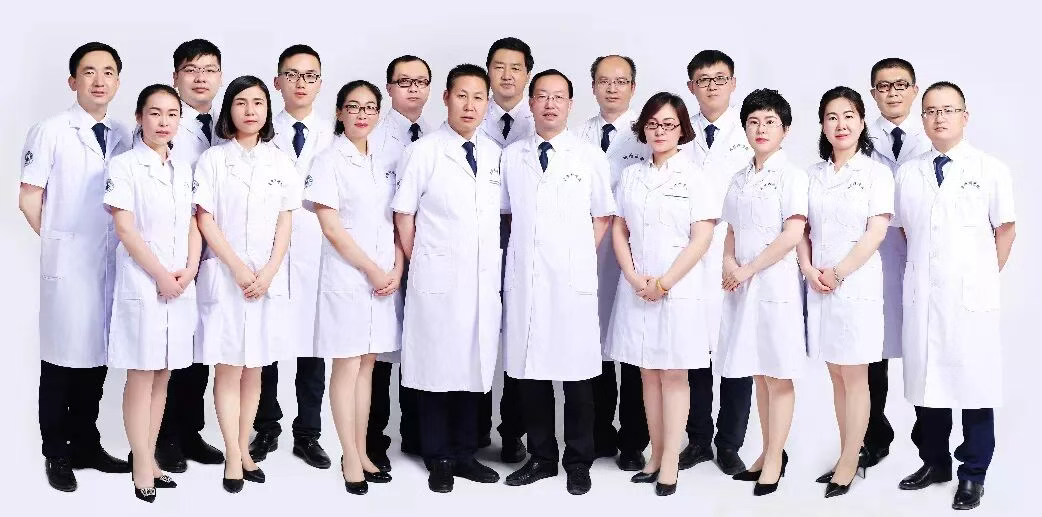
The model benefits over 1 million residents in Wuwei and surrounding regions by:
• Promoting the health concept of "early detection, early diagnosis, early treatment" to encourage scientific lifestyle changes.
• Translating research (e.g., "Sequential Methods for Gastric Cancer Screening") into public health services through five national/provincial platforms, including the National Ministry of Health Gastric Cancer Early Diagnosis and Treatment Base.
• Pioneering low-dose radiotherapy combined with immunotherapy and other innovations, with multiple state-funded clinical studies internationally registered, enhancing the integrated "prevention-screening-diagnosis-treatment" system.
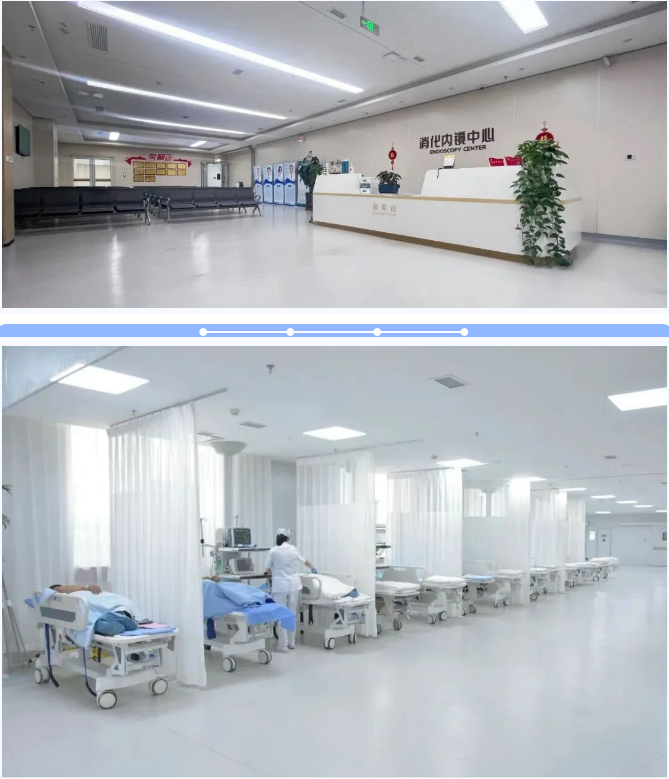
Conclusion: Forging a New Chapter in Western Medical Excellence
The launch of the new center exemplifies " upholding integrity while innovating" in western China’s healthcare. From groundbreaking "Gansu-first" technologies to talent aggregation via Sino-foreign collaboration, and from the "Wuwei Model" benefiting people to research-driven upgrades, the Digestive Center of Gansu Wuwei Tumor Hospital aims to become a national-level key discipline. Adhering to the mission of "detecting one cancer early, saving one life,幸福 one family,"its approach offers tangible health benefits to the region and contributes a replicable "Wuwei Solution" to digestive disease prevention in western China and beyond, fueling the advancement of the "Healthy China" strategy.
Preliminary Review: Zhang Lihong
Final Review: Zhang Jie
